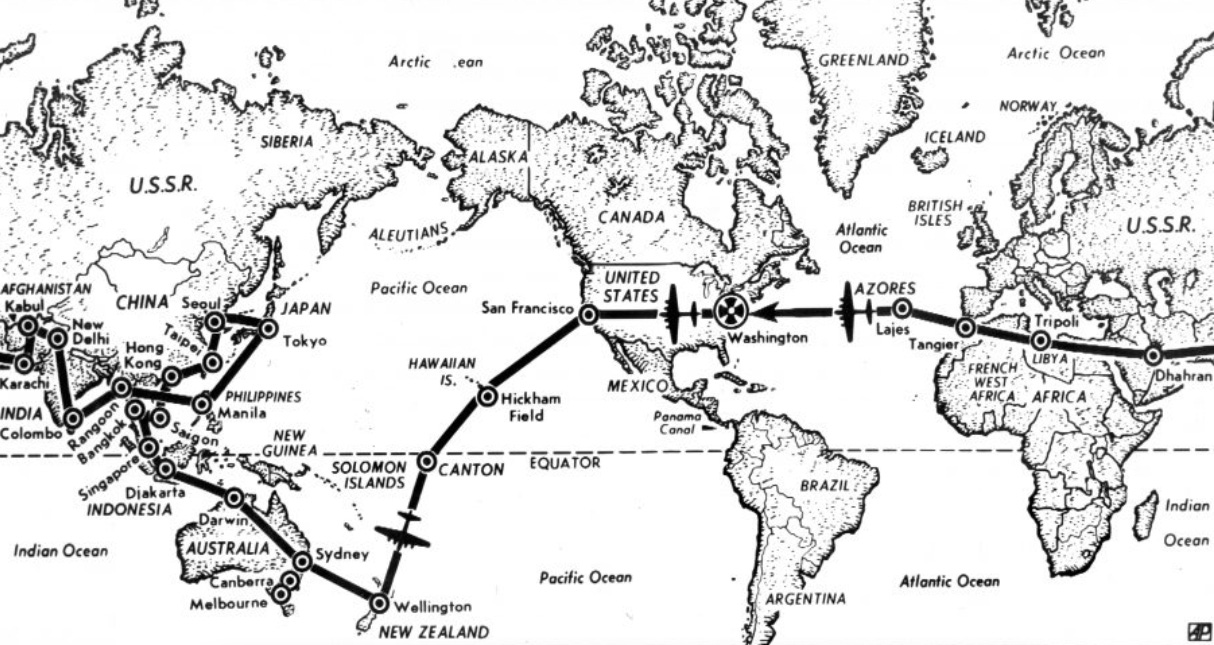Week signals: The start of the dealmaking
Plus: watch points for Azerbaijan, Mozambique, Peru, Sri Lanka, and Mauritius.

This week:
IN REVIEW. America First in a multipolar world, diplomacy in the '70s, and solutions without rules.
UP AHEAD. COP29 begins, Mozambique erupts, Peru hosts APEC, and the Indian Ocean votes.
The Week in Review: Trump’s multipolar moment
The week began with an election in Moldova and a crisis in Bolivia. It ended with a 10 trillion yuan ($839 billion) debt swap in China and an antisemitic riot in Amsterdam. In between was another hurricane in Cuba, an election in Palau, a government collapse in Germany, EU summits in Hungary, and the judiciary’s surrender to the executive in Mexico.
But of course, what everyone is talking about is Donald Trump's conclusive win in the US, setting the Republicans on course for at least two years of near-untrammelled authority (unless from within, as we’ve written about this week).
For a dealmaker like Trump, it presents perfect conditions for a dealmaking season. In domestic politics his agenda is full, with tax cuts, deregulation and tighter migration. In foreign affairs, he's promised to end the wars in Ukraine and Gaza, push back against China, raise tariffs, and restore US prestige (at least in his telling). There have been plenty of suggestions for how he might achieve this, but the difference between the possible and plausible can only be seen through an analysis of constraints. And while he may have temporary control of policy levers, at the level of geopolitics, US power has never been more contested since the early 1970s, when the Soviet Union was at its peak.
Many comparisons have been made between Donald Trump and Richard Nixon (1969-1974), particularly on their scruples, or appeal to a so-called silent majority, but fewer links have been made on foreign policy. Trump does not (yet) have a Henry Kissinger advising him, but like Nixon he has a basic instinct for diplomatic equilibrium and diplomatic bargaining. He also returns to power (Trump after four years, Nixon after eight since his role as Dwight Eisenhower’s deputy, 1953-1961) in a world where US hegemony is seemingly under threat.
By adopting a realist perspective and assuming a multipolar order, even if – like in our own time – its existence was not universally recognised, Nixon managed one of the Cold War’s greatest feats by striking an accord with China, and severing what remained of the PRC-USSR alliance, earning in turn an amenability from Moscow that allowed the Anti-Ballistic Missile Treaty to be struck, another of Nixon’s more underrated policy achievements.
Many don’t like Trump’s autocrat-friendly approach, but there’s a bit of Nixon here to admire. By approaching the world as if the Washington consensus isn’t the only game in town – rather than wondering why Israel isn’t calling you back – and approaching adversaries with an eye to a deal, rather than a lecture, there’s a better chance of an outcome.
In the dying days of Vietnam and amid a divided America, Nixon’s genius was recognising US vulnerability and global multipolarity to negotiate arrangements that restored greatness and unipolarity in the years ahead (the victories of Reagan and Bush Sr would not have been possible without Nixon’s foundations). And likewise, in the dying days of the Ukraine War and amid a divided American polity, Trump’s chance is to negotiate a stabler equilibrium with the rising powers of the Global South, recognising their strengths, but not ignoring their weaknesses or divisions.
In the current moment, everything that makes Trump a bad diplomat or poor custodian of US values could make him a good dealmaker. Like Nixon, and other realists like Lyndon Johnson, Trump doesn’t give a damn. But like previous periods of disruptive history, there’s a role for disruptive actors who can ignore shibboleths and dismiss experts. That’s not to say norms don’t matter (or, for that matter, experts), but sometimes the rules are meant to be broken.
So what does this mean in practice?


